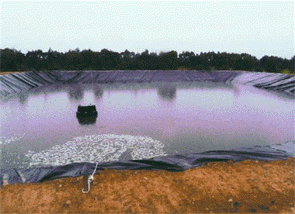
News out from the World Dairy Summit is that NZ's production will be slowed by water and environmental issues. And so it should be, based on the increase in Southlands non compliance figures.
The public are getting less tolerant of dairy's impact on the environment, and the industry needs to work harder on education to solve this problem.The fact that these consent failures were in a period of year where the weather could not be blamed shows seroius flaws in the understanding of the issues.
Fonterra's recent development in farms in China and India is aimed at the potential for growth, and with Russia an area also untapped, will they move there as well?
World prices are predicted to be flat but historically high, and less volatite for the next few years, which will find favour with most farmers.But with dairying one of the worlds most protected industries, trade politics will continue to influence.
NZ dairy production growth will slow to under 2 per cent a year in the run-up to 2019, curbed by water and environmental issues, predicts an OECD analyst. Pavel Vavra, from the economic organisation's trade and agriculture directorate, told the World Dairy Summit that NZ, which he considered the "dairy capital of the world", would still be producing 20 million tonnes of product in the year in 2019. But the real production growth by then, he said, would be in India, Pakistan, Russia and China. However, growth in China would ease on current trends as the focus shifted from quantity to quality reports Stuff.
Dairy prices were expected to be flat until 2019 after the peaks of this year, though they would still be high in historical terms, Mr Vavra said. Water restrictions had reduced the once-bullish forecast for Australian production, with even modest growth projections now dependent on water availability. Exports of cheese and whole milk powder were expected to increase strongly till 2019, and NZ would increase its dominance of the butter export market to 58 per cent, he predicted. The biggest consumption growth between 2007 and 2019 would be in cheese, driven by population and income growth, predominantly in Asia, he said. The demand would be fuelled by the arrival of restaurant chains and the growing prevalence of household refrigerators in developing countries.
Market volatility was not expected to be on the level of the past three years, but uncertainties ahead include weather and economic stability.Other uncertainties included domestic policy development with dairying still one of the world's most protected industries, the outcome of World Trade Organisation negotiations, price volatility, and consumer confidence and milk production competition, Mr Vavra said.
And Southland is still having problems with controlling its enviromental footprint, based on its increase in recent failures to abide by consent regulations.
More Southland dairy farms scored the worst possible mark during compliance inspections in the past season than in previous years, according to an Environment Southland report.The council's annual compliance monitoring report shows that of the 1293 dairy farm consent inspections between September 1, 2009, and June 30 this year, 14.6 per cent or 189 farms scored 10 – the worst possible. Significant non-compliance that incurs a grade 10 include effluent over-application, effluent pond overflow or seepage into waterways says the Southland Times.
However, it did seem that in most cases, non-compliance was because of the human element – poor farm management, he said. An example was that the worst part of the year, between January and March, 18 per cent of the 262 inspections were significantly non-compliant.That was believed to be because effluent irrigators were being slowed down by their operators in warm weather believing soils could absorb more.
During the last financial year 28 infringement notices were issued to dairy farms incurring a $750 fine each and 25 abatement notices for discharge breaches, incorrect equipment and over consented cow numbers.
Four dairy farm companies were successfully prosecuted at the Environment Court.However, Mr Hunter said it was not all bad news for the dairy farmers with a third or 436 of Southland's more than 785 dairy farms getting the top mark – grade 1.
We welcome your comments below. If you are not already registered, please register to comment
Remember we welcome robust, respectful and insightful debate. We don't welcome abusive or defamatory comments and will de-register those repeatedly making such comments. Our current comment policy is here.